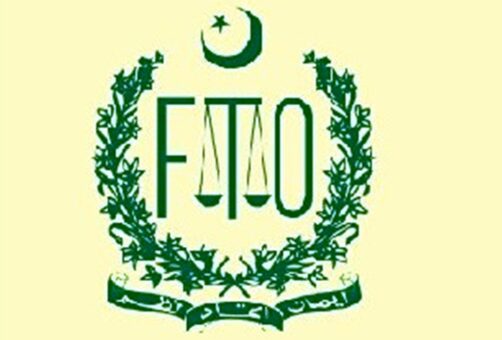ISLAMABAD: An updated list issued by the Federal Board of Revenue (FBR) on Monday revealed that the number of active taxpayers has grown to 3.59 million.
According to the latest Active Taxpayers List (ATL) the total number surged to 3,596,092 by October 16, 2022 for tax year 2021.
READ MORE: FBR gets 3.38 million active taxpayers by August 28, 2022
The ATL will also include names of those taxpayers who will file their income tax returns for the tax year 2021 in coming days till the ATL remained applicable.
The FBR issues ATL weekly basis on Monday to update the names of persons who filed their income tax returns during the week.
ATL provides taxpayers to get concession in payment of lower withholding tax rates or amount. The FBR issues ATL for the new tax year on the first day of March every year. Therefore, the existing ATL will prevail till February 28, 2023.
READ MORE: Tax rates on payments to non-residents during 2022-2023
According to the FBR the ATL is a central record of online Income Tax Return filers for the previous Tax Year.
It further says that ATL is published every financial year on the 1st March and is valid up to the last day of February of the next financial year. For example, Active Taxpayer List for Tax year 2020 was published on 1st March 2021 and will be valid till 28th February 2022. Similarly, Active Taxpayer List for Tax year 2021 will be published on 1st March 2022 and will be valid till 28th February 2023.
The ATL is updated on every Monday on the Federal Board of Revenue (FBR) website.
The FBR said that a person’s name will be part of the current ATL, if the Tax Return filed pertains to the Tax year of the relevant ATL. For example, to be part of the ATL published on 1st March 2021, a person must have filed a Tax return for the Tax year 2020. Similarly, to be a part of the ATL published on 1st March 2022, a person must have filed a Tax Return for the Tax year 2021.
READ MORE: Preventing currency smuggling top priority: FBR Chairman
Restriction on including a person’s name on ATL, if the person has not filed Tax Return by the due date specified by Income Tax authorities was introduced through Finance Act, 2018. For example, to be part of the ATL published on 1st March 2022, a person must file a Tax Return by the specified due date for the Tax year 2021.
However, through Finance Act, 2019 a person’s name can be part of ATL, even if the person has filed Tax Return after the due date specified by Income Tax authorities.
Furthermore, a surcharge for placement on ATL after due date of filing of Tax Return will be charged as under:
Company: Rs20,000
Association of Persons: Rs10,000
Individuals: Rs1,000
READ MORE: FBR collects Rs459 billion as sales tax on POL products in TY 2022
A company or an AOP shall be included in the ATL, whose return is not to be filed due to incorporation or formation after 30th day of June relevant to the Tax year pertaining to the ATL.
Joint account holders as an entity shall be deemed to be part of ATL if any of the persons in the joint account have met the criteria of being included in the ATL.
Bank account held in the name of a minor shall be considered part of ATL if the parents, guardians of the minor or any person who has deposited money in minor’s account are deemed to have met the criteria of being included in the ATL.





